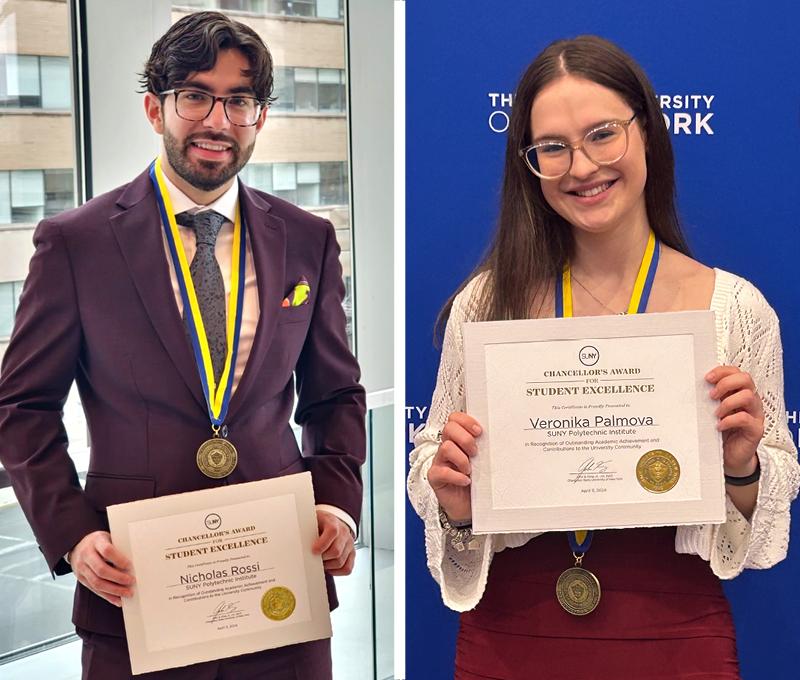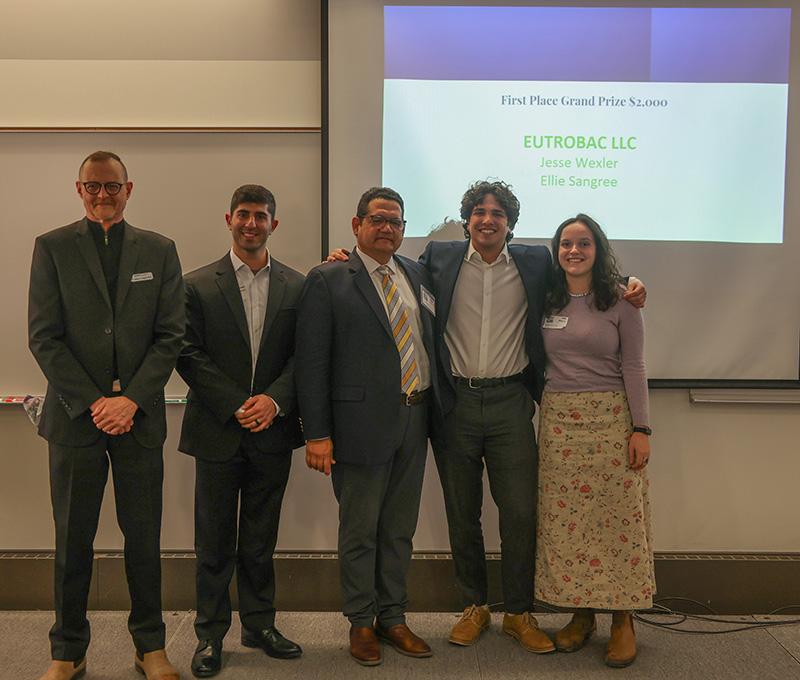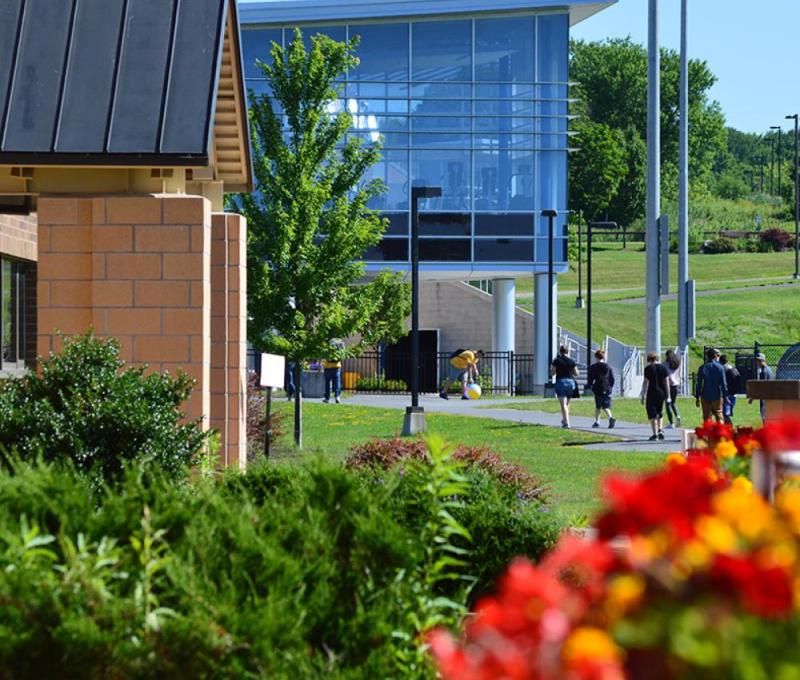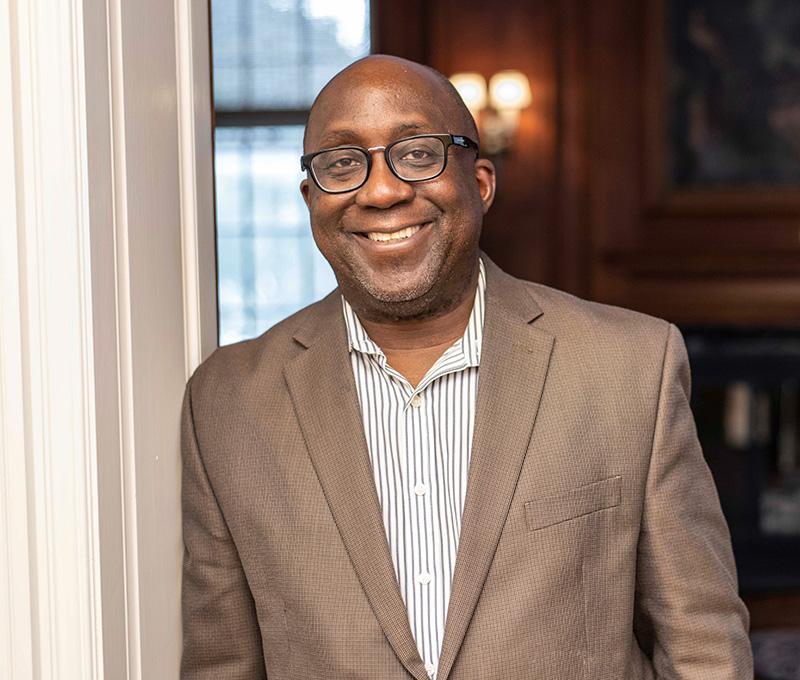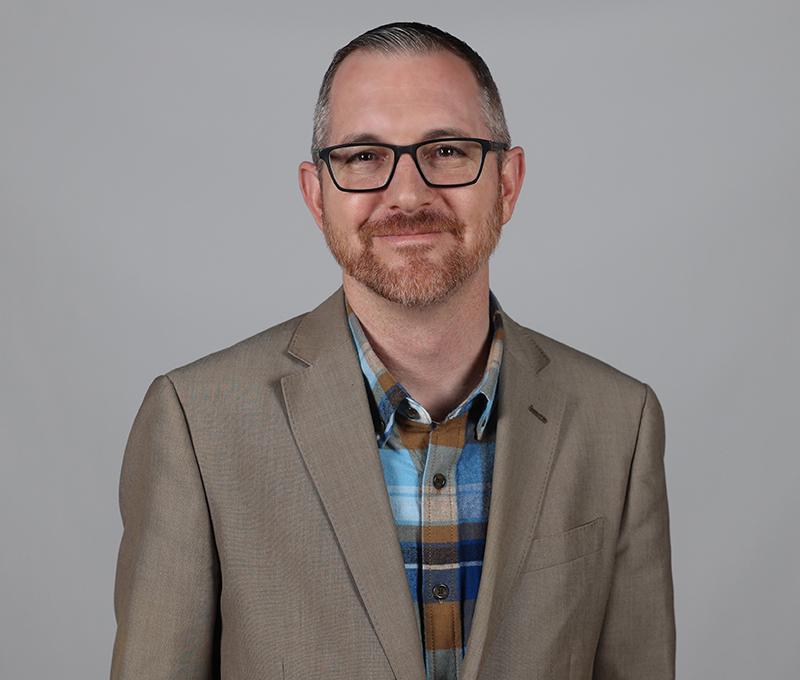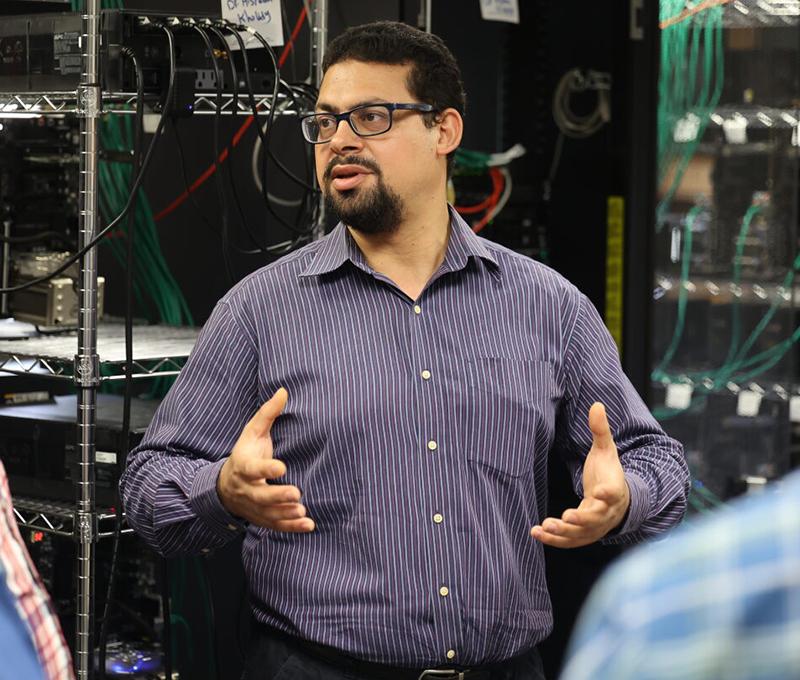Offshore Wind Grants Will Support Projects Led By SUNY Poly, UAlbany Faculty
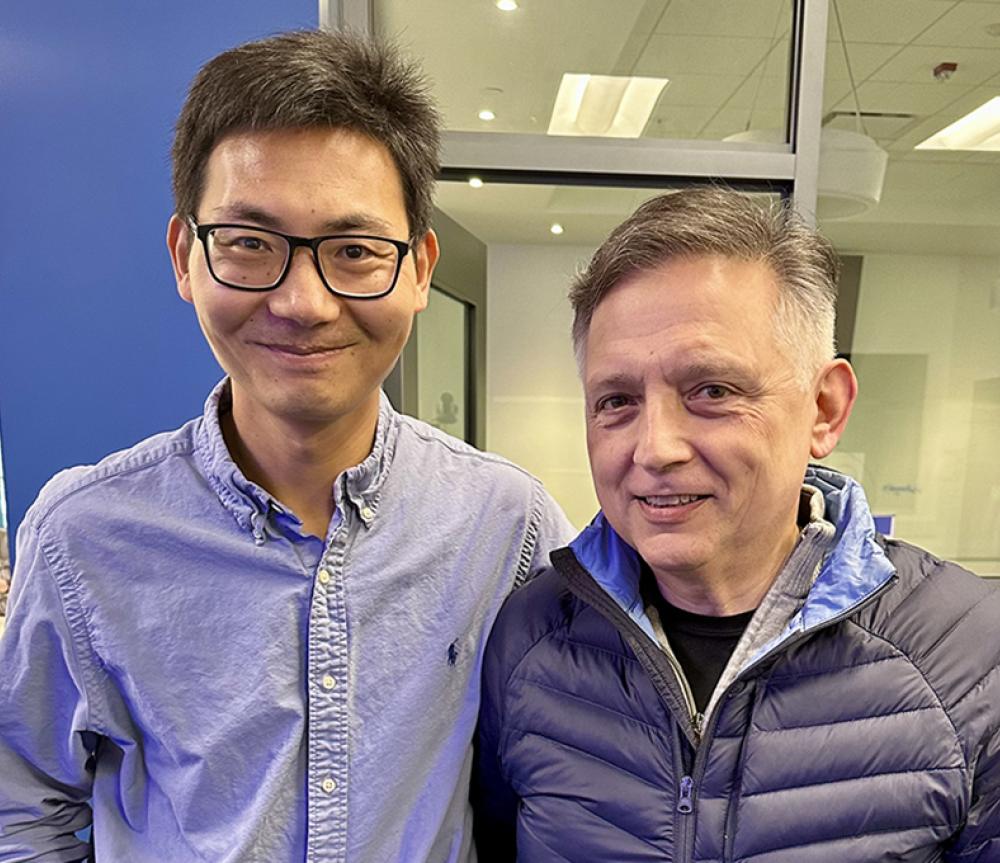
UTICA, NY -- Projects led by SUNY Polytechnic Institute (SUNY Poly) and University at Albany faculty have received funding to advance offshore wind efforts. SUNY Poly Professors of Civil Engineering Dr. Zhanjie Li and Electrical Engineering Technology (EET) Dr. Iulian Gherasoiu, and UAlbany Professor of Nanoscale Science and Engineering Haralabos (Harry) Efstathiadis, have been included in the second round of Offshore Wind Training Institute (OWTI) grants awarded for workforce development. The nearly $4 million in funding, announced by New York Governor Kathy Hochul on Feb. 9, supports 12 programs at eight State University of New York (SUNY) campus-led programs.
“We are grateful for these investments in SUNY Poly and I commend Zhanjie and Iulian for their continued efforts in offshore wind, the advancement of which is a clear priority in New York State,” said SUNY Poly Interim Dean of the College of Engineering and Associate Provost for Research Dr. Michael Carpenter. “These projects will be critical in educating the future generation of engineers entering this booming industry, as well as creating a clear and fast-tracked pathway for students and professionals to successfully enter the offshore wind workforce.”
A project led by Li is receiving approximately $298,000 to develop a strong workforce training program to increase the number of engineers, scientists, and engineering technicians with the skills to contribute to the current offshore wind industry and help foster its growth. SUNY Poly Department of Engineering Technology Chair Dr. Andrew Wolfe and Assistant Professor of Mechanical Engineering Dr. Aarthi Sekaran are Co-Principal Investigators of this new effort. Li was also the recipient of an OWTI grant in round one this past spring, which totaled $400,000 and established the SUNY Poly Offshore Wind Training Team (SPOWT²).
As part of the round one funding, Li and peers developed a plan to enhance workforce training in the design, construction, and manufacture of offshore wind including expanding curriculum, undergraduate research, hand-on labs, and K-12 summer camps to make SUNY Poly’s campus the hub for promoting and supporting offshore wind industries in NY in collaboration with external partners. In this new request, he proposes including additional areas and training opportunities (e.g., workshops) as a complementary effort. In particular, utilizing the expertise in SUNY Poly’s College of Business to add curriculum in critical areas of economics and policy regulation for offshore wind.
Gherasoiu received $86,525 for his part of a collaborative project with University at Albany’s Professor of Nanoscale Science and Engineering Haralabos (Harry) Efstathiadis. The two professors are developing three new courses as part of an offshore wind micro credential program that would be available to students at both campuses (either in-person or asynchronously online).
Two of the courses will be offered at UAlbany’s College of Nanotechnology, Science, and Engineering (CNSE) and will focus on offshore wind energy theory, design and materials of turbine blades, turbine installation, and offshore wind energy economics as well as on the offshore wind energy impacts on society, environment, and climate change.
The third course would be housed in SUNY Poly’s EET Lab.Gherasoiu is responsible for the development of the course on SUNY Poly’s campus, which will focus on the electrical aspects of the wind turbine operation: “Fundamentals of Electrical and Electronic Systems of Wind Turbines.” Gherasoiu was also a recipient of a grant in round one, receiving a total (round one and two) of $113,700 to advance this effort.
These courses at SUNY Poly come to enhance the renewable energy curriculum coordinated by Dr. Gherasoiu, also offered in collaboration with UAlbany’s CNSE, which include courses on the fundamentals of photovoltaic energy, an introduction to electrical energy storage and an introduction to fuel cell nanotechnology.

